With new technologies revolutionizing data collection, wildlife researchers are becoming increasingly able to collect data at much higher volumes than ever before. Now we are facing the challenges of putting this information to use, bringing the science of big data into the conservation arena. With the help of machine learning tools, this area holds immense potential for conservation practices. The applications range from online trafficking alerts to species-specific early warning systems to efficient movement and biodiversity monitoring and beyond.
However, the process of building effective machine learning tools depends upon large amounts of standardized training data, and conservationists currently lack an established system for standardization. How to best develop such a system and incentivize data sharing are questions at the forefront of this work. There are currently multiple AI-based conservation initiatives, including Wildlife Insights and WildBook, that are pioneering applications on this front.
This group is the perfect place to ask all your AI-related questions, no matter your skill level or previous familiarity! You'll find resources, meet other members with similar questions and experts who can answer them, and engage in exciting collaborative opportunities together.
Just getting started with AI in conservation? Check out our introduction tutorial, How Do I Train My First Machine Learning Model? with Daniel Situnayake, and our Virtual Meetup on Big Data. If you're coming from the more technical side of AI/ML, Sara Beery runs an AI for Conservation slack channel that might be of interest. Message her for an invite.
Header Image: Dr Claire Burke / @CBurkeSci

Explore the Basics: AI
Understanding the possibilities for incorporating new technology into your work can feel overwhelming. With so many tools available, so many resources to keep up with, and so many innovative projects happening around the world and in our community, it's easy to lose sight of how and why these new technologies matter, and how they can be practically applied to your projects.
Machine learning has huge potential in conservation tech, and its applications are growing every day! But the tradeoff of that potential is a big learning curve - or so it seems to those starting out with this powerful tool!
To help you explore the potential of AI (and prepare for some of our upcoming AI-themed events!), we've compiled simple, key resources, conversations, and videos to highlight the possibilities:
Three Resources for Beginners:
- Everything I know about Machine Learning and Camera Traps, Dan Morris | Resource library, camera traps, machine learning
- Using Computer Vision to Protect Endangered Species, Kasim Rafiq | Machine learning, data analysis, big cats
- Resource: WildID | WildID
Three Forum Threads for Beginners:
- I made an open-source tool to help you sort camera trap images | Petar Gyurov, Camera Traps
- Batch / Automated Cloud Processing | Chris Nicolas, Acoustic Monitoring
- Looking for help with camera trapping for Jaguars: Software for species ID and database building | Carmina Gutierrez, AI for Conservation
Three Tutorials for Beginners:
- How do I get started using machine learning for my camera traps? | Sara Beery, Tech Tutors
- How do I train my first machine learning model? | Daniel Situnayake, Tech Tutors
- Big Data in Conservation | Dave Thau, Dan Morris, Sarah Davidson, Virtual Meetups
Want to know more about AI, or have your specific machine learning questions answered by experts in the WILDLABS community? Make sure you join the conversation in our AI for Conservation group!
No showcases have been added to this group yet.
- @Gabonia
- | He/him
GABriel ONIfade A. (GABONIA / mrGab), is an educator, a CS and AI advocate, a Data Engineer, an AI Engineer, an Entrepreneur, and curriculum developer based in Brooklyn, New York (NYC DOE District 19). With a background in Systems Engineering, Gabriel specializes in CS & AI Edu.
- 1 Resources
- 1 Discussions
- 4 Groups
- @siddharth119
- | He/Him
Co-founder of Habitat Robotics, a conservation-tech non-profit
- 0 Resources
- 0 Discussions
- 3 Groups
- @Kwabs22
- | He
I'm a dynamic environmental conservationist driving change through research and innovation. I merge farming experience with agroforestry skills and drone technology, fueled by a passion for sustainable agriculture, championing a greener future for a sustainable food system.
- 0 Resources
- 0 Discussions
- 3 Groups
Conservation X Labs
Inventor/Engineer at Parula Innovations, Hardware Engineer for Sentinel at Conservation X Labs, (Recovering) Field Biologist
- 0 Resources
- 0 Discussions
- 6 Groups
Research software engineer working in computer vision for animal behaviour
- 1 Resources
- 1 Discussions
- 13 Groups
Xeno-canto
Co-founder and admin of Xeno-canto.
- 0 Resources
- 2 Discussions
- 2 Groups
- @yvetteehlers
- | she
I am the regional ecologist for South-Eastern KwaZulu-Natal at Ezemvelo KZN Wildllife and a honorary research fellow at the Centre for Functional Biodiversity at the School of Life Sciences, University of KwaZulu-Natal.
- 0 Resources
- 5 Discussions
- 2 Groups
I help conservation scientists spend less time on boring stuff.


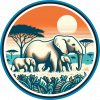
- 0 Resources
- 54 Discussions
- 6 Groups
- @mlamb2
- | she/her
PhD Student working on a computer vision model to detect colonial waterbirds along the Texas coast in aerial imagery
- 0 Resources
- 3 Discussions
- 3 Groups
- @ppalencia
- | Dr
I am Pablo Palencia, a postdoctoral researcher at Biodiversity Research Institute (IMIB). I am interested on develop and fine-tuning cutting-edge tools for wildlife management and conservation, wit a special mention of camera trapping ;)
- 0 Resources
- 0 Discussions
- 7 Groups
I'm a young conservationist from Ghana with over 7 years experience in Pangolin Conservation. My focus in Conservation is the human dimension of conservation. I am currently the manager for the Onepone Endangered Species Refuge.
- 0 Resources
- 0 Discussions
- 8 Groups
Natural Solutions
Computational ecologist - Engineer at Natural Solutions (France)



- 0 Resources
- 1 Discussions
- 13 Groups
Microchip has just announced the 1 GHz SAMA7G54 single-core Arm Cortex-A7 microprocessor (MPU) with MIPI CSI-2 and parallel camera interfaces, as well as up to four I2S, one SPDIF transmitter and receiver, and a 4-...
3 June 2022
Global Forest Watch's Small Grants Fund is now open for applications for the 2023 grant cycle. Deadline is August 1.
1 June 2022
The African Robotics Unit is looking for a Postdoctoral Research Associate to join A/Prof. Amir Patel’s lab at UCT. The Postdoc will investigate how sensor fusion can be leveraged to understand the locomotion of...
1 June 2022
Looking for biodiversity data? New review paper has an overview of biodiversity information portals, both global and country-specific
9 May 2022
Careers
The Department of Environmental Science, Policy & Management (ESPM) seeks applicants for the position of Executive Director for the Eric & Wendy Schmidt Center for Data Science & Environment (DS4E) at the...
9 May 2022
In Season Four of the Virtual Meetup Series, we’re bringing together leading engineers, conservationists, and academics to explore the future of technology in movement ecology and ask where exactly investment is needed...
29 April 2022
Check out this round-up of three of the latest conservation tech studies and news. See more conservation tech news by subscribing to our bi-monthly digest.
24 March 2022
Community Announcement
Are you an early career Kenyan conservationist looking to explore emerging conservation technologies while networking with a strong cohort of other female leaders? Apply now for our 6-month Women in Conservation Tech...
8 March 2022
We're proud to introduce the first WILDLABS On the Edge Fellows for 2022, Loretta Schindlerova and Meredith Palmer! Working alongside expert Edge Impulse mentors, these two fellows will use embedded machine learning to...
10 February 2022
We have a big vision for our Fellowships & Awards Programme: to create a better way for the tech industry to more meaningfully and impactfully engage with our conservation community. As we open our first fellowships...
28 January 2022
This article provides a review of deep learning (predominantly ML) used in marine ecology and considerations for its future directions in conservation. In plain language, the authors provide a methodology for training...
20 December 2021
Community Announcement
We've wrapped our first AI for Conservation Office Hours, a new programme where we set up 1:1 sessions with conservationists using or thinking about using AI so they could receive expert guidance from data scientists at...
14 December 2021
August 2025
event
September 2025
event
event
event
event
October 2025
event
event
event
December 2025
event
March 2026
November 2023
event
event
17 Products
Recently updated products
| Description | Activity | Replies | Groups | Updated |
|---|---|---|---|---|
| Hi Zhongqi! We are finalizing our modelling work over the next couple of weeks and can make our work availabile for your team. Our objective is to create small (<500k... |
|
AI for Conservation, Camera Traps, Software Development | 8 months 3 weeks ago | |
| Hats off to your team for this absolute game-changing technology! We rescue stray and wild animals in Taiwan, and the bulk of our work is saving animals maimed by wire snares... |
+37
|
AI for Conservation, Drones, Emerging Tech, Human-Wildlife Coexistence, Wildlife Crime | 8 months 3 weeks ago | |
| There's quite a few diy or prototype solutions described online and in literature - but it seems none of these have made it to market yet as generally available fully usable... |
|
AI for Conservation, Camera Traps, Human-Wildlife Coexistence, Sensors | 8 months 4 weeks ago | |
| As others have said, pretty much all image models at least start with general-subject datasets ("car," "bird," "person", etc.) and have to be refined to work with more precision... |
+20
|
AI for Conservation, Camera Traps | 9 months ago | |
| This is a thread for anyone who has questions about AI for Conservation Office Hours 2025.We're once again teaming up with Dan Morris from... |
|
Acoustics, AI for Conservation, Camera Traps, Community Base, Geospatial | 9 months ago | |
| One thing I love about software is that in an ever-changing landscape of languages, frameworks, and tools, you can never stop learning.... |
|
Software Development, AI for Conservation | 9 months ago | |
| Hi Eugene!Interesting project!I already signed up to test it!Cheers,Lars |
|
AI for Conservation, Camera Traps | 9 months 1 week ago | |
| I am certainly a somewhat vertical thing with a lump on top, so I get it... |
|
AI for Conservation | 9 months 2 weeks ago | |
| Hi all! I wanted to open a discussion on a topic that I've been thinking about ever since I entered the job market-- how to get a... |
|
Software Development, AI for Conservation, Early Career, Open Source Solutions | 9 months 3 weeks ago | |
| That's great, thanks Lars! |
|
AI for Conservation | 9 months 3 weeks ago | |
| I did a short presentation on our work with the polar bear alarm in the Wildlabs Variety Hour October 30th.It can be found here : https://www.youtube.com/watch?v=zr2Q8bUJZ8U... |
|
Human-Wildlife Coexistence, AI for Conservation | 9 months 3 weeks ago | |
| Comma.ai would be your best bet. Not sure if it's officially open source but was started by a noteable hacker with an open source ethos. Could try reaching out to them. |
|
AI for Conservation | 10 months ago |
Meetup: Machine Learning/AI on Earth Observation Data (23 July, London)
21 June 2019 12:00am
New open data site for fisheries
10 June 2019 7:17pm
Workshop & Challenges on Computer Vision for Wildlife Conservation (CVWC) at ICCV 2019
5 June 2019 6:51am
Technology companies, FCO, and conservation NGOs come together to scale technology solutions to end wildlife crime
4 June 2019 12:00am
AI for Earth Innovation Grant (extended)
4 June 2019 12:00am
CogX Festival of AI and Emerging Technology - free tickets for WILDLABS members
16 May 2019 12:12pm
3 June 2019 4:53pm
Are there any free tickets left for CogX?
I am on anthony.peake@agiledatum.com
3 June 2019 5:04pm
yep! Drop me an email at stephanie.odonnell@wildlabs.net and I'll get you a link.
Steph
How machine learning can help fight illegal wildlife trade on social media
31 May 2019 12:00am
GWP Webinar Recording: Using SMART at scale for effective wildlife protection
21 May 2019 12:00am
WILDLABS TECH HUB Showcase
17 May 2019 12:00am
Meet the WILDLABS TECH HUB Winners
13 May 2019 12:00am
Huge appetite for data trusts, according to new ODI research
15 April 2019 12:00am
Call for Papers: Data Mining and AI for Conservation Workshop at KDD 2019
15 April 2019 12:00am
Call for Papers: Thematic issue of Environment Conservation on ‘Conservation Artificial Intelligence’
26 March 2019 10:12am
WILDLABS Virtual Meetup: Low Cost, Open-Source Solutions
18 March 2019 12:00am
#Tech4Wildlife Photo Challenge: Our Favourites from 2019
3 March 2019 12:00am
Conserving the Sumatran and Javan Rhino
15 January 2019 7:39pm
23 January 2019 10:12pm
Hello Claire,
Engineer at Wild Me here. We would love to start a conversation about a Wildbook for rhinos.
Lets talk about citizen science and computer vision for identification possibilities. I'm curious about your current data set and the identification tools you are using as a starting point. I'm happy to talk here, or you can email our team at services@wildme.org.
24 February 2019 1:28am
Hi Claire,
At the BearID Project, we are working on a similar problem for brown bears. We are currently using machine learning methods developed for human facial recognition (like Google FaceNet). We got some ok initial results, but now we are running up against small data issues. The method for human faces were trained with millions of images of hundreds of thousandes on individuals. We have a few thousand images of about a hundred individuals. We plan to investigate other methods in the future.
It will be great to keep in touch to see what methods you will be using.
Ed
24 February 2019 1:38am
Hi Colin,
At the BearID Project, we are working on a similar problem for brown bears. We are currently using machine learning methods developed for human facial recognition (like Google FaceNet). We got some ok initial results, but now we are running up against small data issues. The method for human faces were trained with millions of images of hundreds of thousandes on individuals. We have a few thousand images of about a hundred individuals. We plan to investigate other methods in the future.
The last time I talked to WildMe, the identification algorithms were based on matching unique patterns. We didn't think this would be directly applicable for brown bears as they don't have a lot of clearly identifiable markings. Have you developed other identification algorithms?
Ed
Responsible AI for Conservation?
11 February 2019 6:22pm
21 February 2019 8:17am
Hi Jaishanker
Absolutely - the overlap between image-based and sound-based analyses is increasing, and consistent terminology will no doubt help us share info.
Are you using ML in SODA for automated identification of sounds? If so, how are you determining if a given classifier is performing well?
Thanks
Ollie
21 February 2019 11:08am
Hello Ollie,
SODA is a recently launched suite. It is in the development phase. We have with us call libraries with multiple (40+) calls for 10- 12 species of birds. A research scholar is on the job for classifying at the species level.
Our interest is equally on separating the different sonic components (as stated in https://www.wildlabs.net/community/thread/666). It is different from the link shared in my previous reply. This is where I see the confluence of objectives.
As a TEAM, I believe, we can address the individual objectives faster.
regards
jaishanker
21 February 2019 9:13pm
Hi Ollie,
Great article, thank you! I mostly work with responsible AI in other contexts, at Doteveryone.org.uk and the Trust & Technology Initiative at the University of Cambridge, so don't have much to offer here, although I am very interested in the topic. I appreciate your point that many of the consumer data issues highlighted in the 'popular' responsible AI discourse aren't relevant to conservation (some of us have been gathering 'responsible tech' / 'ethical tech' resources in a shared doc, and there's essentially nothing there for conservation specifically - https://docs.google.com/document/d/1SN6hYeKe3eRK6x9D0Sr7GpCA4nirpyo3u68xG1A6NDs/edit ). However there might be some links with humanitarian data practices, which are touched on by the Responsible Data folks at https://responsibledata.io and https://www.fabriders.net/data-literacy-consortium/ or in this recent article https://asecondmouse.wordpress.com/2019/02/20/instability-forecasting-models-seven-ethical-considerations/
Best,
Laura
Using Swiss AI and Drones to Count African Wildlife
18 February 2019 12:00am
ChimpFace: Facial recognition to combat wildlife trafficking
6 February 2019 12:00am
UK’s first data trusts to tackle illegal wildlife trade and food waste
31 January 2019 12:00am
The Ecosulis Rewilding Tech Challenge
14 January 2019 12:00am
WILDLABS Virtual Meetup: Big Data in Conservation
27 November 2018 12:00am
Canopy cameras shed new light on monkey business in Brazil
22 November 2018 12:00am
A technologist's journey to protect wildlife: The reality and potential of conservation technology (recorded talk)
22 November 2018 12:00am
WILDLABS Virtual Meetup: Networked Sensors for Security and HWC Prevention
12 November 2018 12:00am
Tusk Conservation Lecture 2018: Ted Schmitt
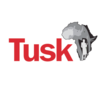 Tusk
Tusk
15 October 2018 12:00am
Biology Undergrad Attempts Automated Species Recognition Using MacBook Air and Google
1 October 2018 12:00am
How to share data on species to help conserve them… whilst avoiding them being exploited by poachers
20 August 2018 12:00am
Ocean Hack: San Francisco, 10-11th September, 2018
 One Ocean Collab
One Ocean Collab
20 August 2018 12:00am
Thermal Sensor Project Update: Testing with live animals at the San Diego Zoo
27 July 2018 12:00am
31 March 2023 2:15pm

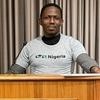

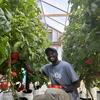



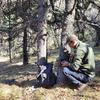






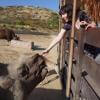





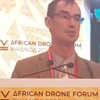
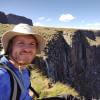

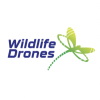



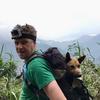






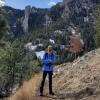




















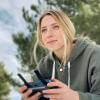


28 May 2019 12:02pm
UPDATE: We've had quite a few members emailing us for tickets, so I'm looking forward to meeting everyone in person! We've now been allocated some extra tickets, so if you are interested you're in luck, there is still a chance to come along.